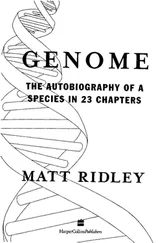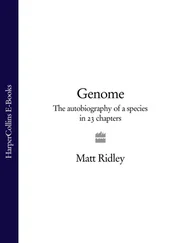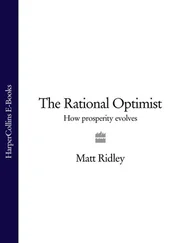The Queen - Matt Ridley
Здесь есть возможность читать онлайн «The Queen - Matt Ridley» весь текст электронной книги совершенно бесплатно (целиком полную версию без сокращений). В некоторых случаях можно слушать аудио, скачать через торрент в формате fb2 и присутствует краткое содержание. Жанр: Старинная литература, на английском языке. Описание произведения, (предисловие) а так же отзывы посетителей доступны на портале библиотеки ЛибКат.
- Название:Matt Ridley
- Автор:
- Жанр:
- Год:неизвестен
- ISBN:нет данных
- Рейтинг книги:4 / 5. Голосов: 1
-
Избранное:Добавить в избранное
- Отзывы:
-
Ваша оценка:
- 80
- 1
- 2
- 3
- 4
- 5
Matt Ridley: краткое содержание, описание и аннотация
Предлагаем к чтению аннотацию, описание, краткое содержание или предисловие (зависит от того, что написал сам автор книги «Matt Ridley»). Если вы не нашли необходимую информацию о книге — напишите в комментариях, мы постараемся отыскать её.
Matt Ridley — читать онлайн бесплатно полную книгу (весь текст) целиком
Ниже представлен текст книги, разбитый по страницам. Система сохранения места последней прочитанной страницы, позволяет с удобством читать онлайн бесплатно книгу «Matt Ridley», без необходимости каждый раз заново искать на чём Вы остановились. Поставьте закладку, и сможете в любой момент перейти на страницу, на которой закончили чтение.
Интервал:
Закладка:
the more favored of his subjects: The result was that Dahomean kings were very fecund, while ordinary Dahomean men were often celibate and barren: In the city of Abomey, according to one nineteenth-century visitor, "it would be difficult to find Dahomeans who were not descended from royalty: "
The connection between sex and power is a long one.'
MANKIND, AN ANIMAL
So far this book has taken only a few, sideways glances at human beings. This is deliberate: The principles I have been trying to establish are better illustrated by aphids, dandelions, slime molds, fruit flies, peacocks, and elephant seals than they are by one peculiar ape. But the peculiar ape is not immune to those principles.
Human beings are a product of evolution as much as any slime mold, and the revolution of the last two decades in the way scientists now think about evolution has immense implications for mankind as well. To summarize the argument so far, evolution is more about reproduction of the fittest than survival of the fittest; every creature on earth is the product of a series of historical battles between parasites and hosts, between genes and other genes, between members of the same species, between members of one gender in competition for members of the other gender. Those battles include psychological ones, to manipulate and exploit other members of the species; they are never won, for success in one generation only ensures that the foes of the next generation are fitter to fight harder: Life is a Sisyphean race, run ever faster toward a finish line that is merely the start of the next race: This chapter begins to follow the logic of these arguments into the heart of human behavior: Those who think this unjustified on the grounds that human beings are unique usually advance one of two arguments: that in humans everything about behavior is learned, and nothing is inherited; or inherited behavior is inflexible POLYGAMYAND THE NATURE OF MEN
::: 175 :::
behavior, and human beings are clearly flexible. The first argument is an exaggeration, the second false: A man does not experience lust because he learned it at his father 's knee; a person does not feel hunger or anger because she was taught it. They are human nature: We are born with the potential to develop lust, hunger, and anger.
We learn to direct hunger at hamburgers, anger at delayed trains, and lust at the object of our affection—when appropriate: So we have "changed " our " nature. " Inherited tendencies permeate everything we do, and they are flexible. There is no nature that exists devoid of nurture; there is no nurture that develops without nature: To say otherwise is like saying that the area of a field is determined by its length but not its width. Every behavior is the product of an instinct trained by experience:
The study of human beings remained resolutely unre-formed by these ideas until a few years ago: Even now, most anthropologists and social scientists are firmly committed to the view that evolution has nothing to tell them: Human bodies are products of natural selection; but human minds and human behavior are products of "culture, " and human culture does not reflect human nature, but the reverse. This restricts social scientists to investigating only differences between cultures and between individuals—and to exaggerating them. Yet what is most interesting to me about human beings is the things that are the same, not what is different—things like grammatical language, hierarchy, romantic love, sexual jealousy, long-term bonds between the genders ( "marriage," in a sense). These are trainable instincts peculiar to our species and are just as surely the products of evolution as eyes and thumbs.'
THE POINT OF MARRIAGE
For a man, women are vehicles that can carry his genes into the next generation. For a woman, men are sources of a vital substance (sperm) that can turn their eggs into embryos. For each gender the other is a sought-after resource to be exploited: The question is,
::: 176 :::
The Red Queen
how? One way to exploit the other gender is to round up as many as possible of them and persuade them to mate with you, then desert them, as bull elephant seals do: The opposite extreme is to find one individual and share all the duties of parenthood equally, as albatrosses do: Every species falls somewhere on that spectrum, with its own characteristic "mating system. " Where does humanity fall?
There are five ways to find out. One is to study modern people directly and describe what they do as the human mating system: The answer is usually monogamous marriage. A second way is to look at human history and divine from our past what sexual arrange-ments are typical of our species: But history teaches a dismal lesson: A common arrangement from our past was that rich and powerful men enslaved concubines in large harems: A third way is to look at people living in simple societies with Stone Age technologies and conjecture that they live much as our ancestors lived ten millennia ago. They tend to fall between the extremes: less polygamous than early civilizations, less monogamous than modern society: The fourth technique is to look at our closest relatives, the apes, and compare our behavior and anatomy with theirs: The answer that emerges is that men 's testicles are not large enough for a system of promiscuity like the chimpanzee 's, men's bodies are not big enough for a system of harem polygamy like the gorilla ' s (there is an iron link between harem polygamy in a species and a large size differential between male and female), and men are not as antisocial and adjusted to fidelity as the monogamous gibbon. We are somewhere in between. The fifth method is to compare humans with other animals that share our highly social habits: with colonial birds, monkeys, and dolphins: As we shall see, the lesson they teach is that we are designed for a system of monogamy plagued by adultery: It is at least possible to rule out some options. There are characteristically human things that we do, such as form lasting bonds between sexual partners, even when polygamous: We are not like sage grouse whose marriages last for minutes. Nor are we polyandrous, like the jacana or lily-trotter, a tropical water bird that has big fierce females that control harems of small domesticated males. There is only one truly polyandrous society on Earth; it is in POLYGAMY AND THE NATURE OF MEN
::: 177:::
Tibet and consists of women who marry two or more brothers simultaneously in an attempt to put together a family unit that is economically viable in a harsh land where men herd yaks to support women. The junior brother 's ambition is to leave and obtain his own wife, so polyandry is plainly a second-best outcome for him.'
Nor are we like the robin or the gibbon, which are strictly territorial, each pair monopolizing and defending a home range sufficient to live their whole lives within. We build garden fences, but even our homes are often shared with lodgers or fellow apartment dwellers, and most of our lives are spent on some form of common ground, at work, shopping, traveling, entertaining ourselves: People live in groups.
None of this is much help, then: Most people live in monogamous societies, but this may only tell us what democracy usually prescribes, not what human nature seeks: Relax the antipolygamy laws and it flourishes. Utah has a tradition of theo-logically sanctioned polygamy and in recent years has been less forceful about prosecuting polygamists, so the habit has reemerged.
Although the most populous societies are monogamous, about three-quarters of all tribal cultures are polygamous, and even the ostensibly monogamous ones are monogamous in name only.
Throughout history powerful men have usually had more than one mate each, even if they have had only one legitimate wife: However, that is for the powerful: For the rest, even in openly polygamous societies, most men have only one wife and virtually all women have only one husband: That leaves us precisely nowhere. Mankind is a polygamist and a monogamist, depending on the circumstances.
Читать дальшеИнтервал:
Закладка:
Похожие книги на «Matt Ridley»
Представляем Вашему вниманию похожие книги на «Matt Ridley» списком для выбора. Мы отобрали схожую по названию и смыслу литературу в надежде предоставить читателям больше вариантов отыскать новые, интересные, ещё непрочитанные произведения.
Обсуждение, отзывы о книге «Matt Ridley» и просто собственные мнения читателей. Оставьте ваши комментарии, напишите, что Вы думаете о произведении, его смысле или главных героях. Укажите что конкретно понравилось, а что нет, и почему Вы так считаете.












